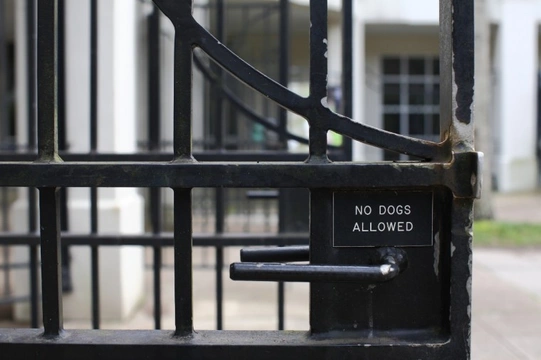
What type of landlords will rent to dog owners?
If you’re looking to move home and have a dog or if you’re planning your next rental with the ability to get a dog in mind, there’s no denying that this adds a complication and challenge that isn’t there if it was just you. Before you can even get as far as judging whether or not the premises itself would be suitable for a dog, you have to find out if this would even be allowed.
Whether or not you can get a dog if you rent your home depends on the rules in place within the terms of your tenancy agreement, and if you are already in a rented premises and have not kept a pet there by agreement already, checking the contract should tell you; there is commonly a section on pets not being allowed.
This caveat is almost standard today unless the landlord and tenant negotiate to remove it, as even landlords that will consider pets want to know what they’re dealing with first!
There is no hard and fast rule in this respect, and regardless of the type of landlord or rental company you’re dealing with, they’ll each have their own rules and rigidity in being willing to amend them for the right tenant.
However, in terms of different types of landlords (such as commercial operations, private landlords, council housing and so on) there can be quite a degree of variance in what is normally allowed, or what type of landlords are most likely to give you leeway to keep a dog.
It also goes without saying that getting a dog if this is not allowed or you’re not sure is a terrible idea, and likely to cause you a huge problem further down the line.
This article will talk about the general rules different types of landlords tend to have for tenants being permitted to have dogs, although once more, this is something to check on a case-by-case basis with your own landlord or prospective landlord. Read on to learn more.
Larger Companies and commercially-operating landlords of residential accommodation don’t usually allow dogs
Properties that are managed by a company as part of a large portfolio; either by a business or on behalf of a remote landlord that you never meet or even potentially get to know about – are highly unlikely to permit dogs in their premises.
Large commercial firms like this (such as those that might build or buy a whole apartment building to let the apartments long term as a commercial endeavour) tend to have very fixed, blanket rules for tenants, with no room for leeway or negotiation.
Independent small-scale private landlords can be really variable, but you have the added advantage of dealing with them directly
When it comes to independent private landlords and/or those operating on a very small scale; renting out just one or two properties that they seek tenants for and manage themselves – rules on dogs come down the the landlord’s personal choice.
Few landlords will actually list ads saying something like “dogs welcome,” but unless an ad is very clear on not allowing pets, it is worth opening a conversation and slipping the question in there, ideally after you’ve established yourself as the sort of person that would make for a good tenant!
Some private landlords will of course say no, and some will want to think about this, and generally talk to you in detail about the type of dog and what type of owner you are before they decide.
But when you deal with a private landlord directly, you do have a better chance of pleading your case, particularly if the landlord is a dog owner themselves.
Estate agents representing private landlords can make things more challenging
Many private landlords that own one or multiple properties use estate agents to find their tenants and potentially manage the properties too, and have little or no direct contact with their tenants.
These are more likely to have a no dogs rule, and mean that you generally can’t speak to the landlord directly to ask for flexibility. However, it is again worth asking the estate agent to ask owners if they will consider a dog; or to contact estate agents and get them working proactively for you to help you to find a place that will permit a dog.
Council and housing association permanent accommodation usually permits dogs
When it comes to council housing and housing association properties that are rented to tenants on a long-term basis as permanent accommodation, the general rule or policy is that tenants can have pets where the property type is suited to this, the tenancy agreement reflects it, and the welfare of the animal can be assured.
There are often rules on the type or number of pets that tenants can have, but permanent accommodation offered by council or housing association landlords that are deemed suitable for pets are usually ok to keep a dog in.
Short-term or temporary council and housing association accommodation usually forbids dogs
However, short-term or temporary council or housing accommodation (even if you have been in it for months or years, if it is not considered to be permanent) will usually have a blanket rule that you may not keep a pet. Such accommodation is often not suitable for pets anyway; or may be seconded to the association or council by a third-party private landlord who themselves mandate that no dogs or other pets are allowed.



